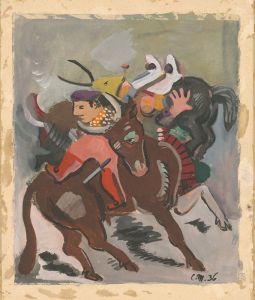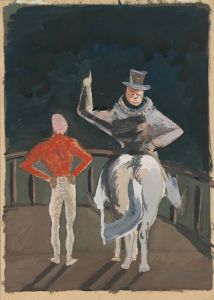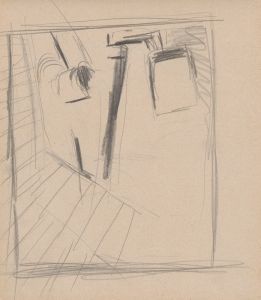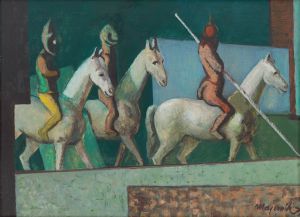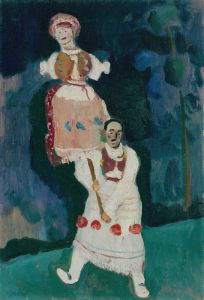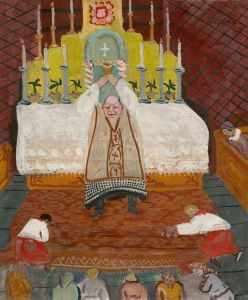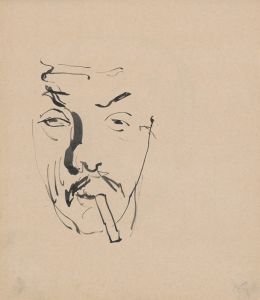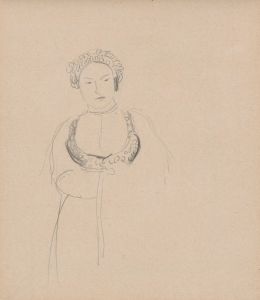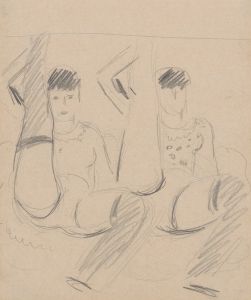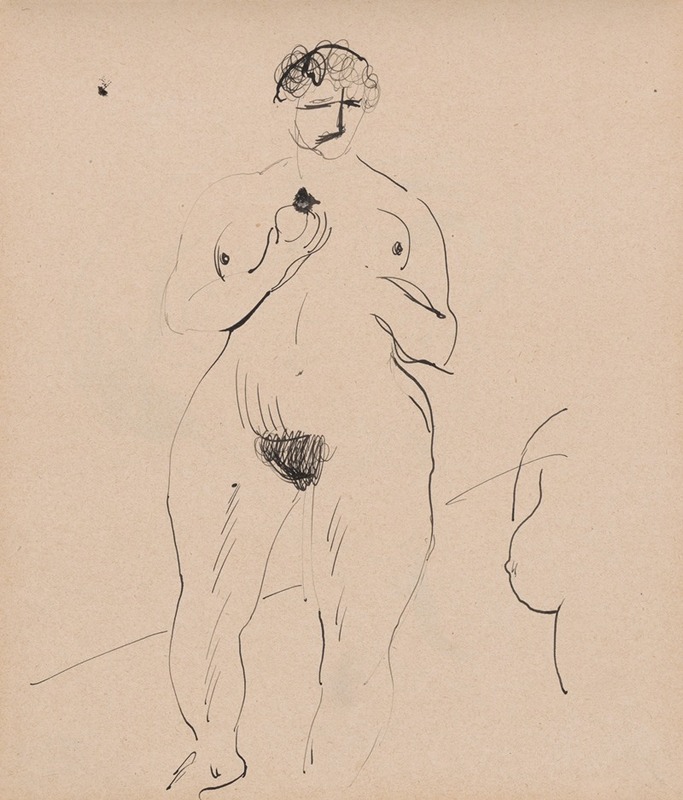
Skicár
A hand-painted replica of Cyprián Majerník’s masterpiece Skicár, meticulously crafted by professional artists to capture the true essence of the original. Each piece is created with museum-quality canvas and rare mineral pigments, carefully painted by experienced artists with delicate brushstrokes and rich, layered colors to perfectly recreate the texture of the original artwork. Unlike machine-printed reproductions, this hand-painted version brings the painting to life, infused with the artist’s emotions and skill in every stroke. Whether for personal collection or home decoration, it instantly elevates the artistic atmosphere of any space.
Cyprián Majerník was a Slovak painter known for his poignant and expressive works, often reflecting the socio-political turmoil of his time. Born on November 24, 1909, in Veľké Kostoľany, Majerník became a significant figure in Central European art during the early to mid-20th century. His works are characterized by a unique blend of expressionism and surrealism, often infused with a deep sense of melancholy and existential reflection.
One of Majerník's notable works is "Skicár," which translates to "Sketchbook" in English. This piece, like many of his works, is reflective of his personal experiences and the broader historical context in which he lived. Majerník's career was notably influenced by the political upheavals and the rise of totalitarian regimes in Europe, which deeply affected his artistic expression.
"Skicár" is not just a single painting but rather a collection of sketches that provide insight into Majerník's creative process and thematic preoccupations. The sketches within "Skicár" often depict scenes of human figures in various states of emotion and interaction, showcasing Majerník's interest in the human condition and the psychological depth of his subjects. His use of line and form is both expressive and economical, capturing the essence of his subjects with minimal detail.
Majerník's work is often marked by a somber palette and a focus on themes of alienation, despair, and the absurdity of the human condition. This is reflective of the broader existential themes that were prevalent in European art and literature during the interwar and World War II periods. His sketches in "Skicár" are no exception, often portraying figures in isolation or in ambiguous, dream-like settings that evoke a sense of unease and introspection.
Despite the challenges he faced, including a battle with multiple sclerosis, Majerník continued to produce art that resonated with the emotional and psychological complexities of his time. His work in "Skicár" can be seen as a testament to his resilience and dedication to his craft, offering a window into the mind of an artist grappling with both personal and collective crises.
Majerník's contributions to art were recognized during his lifetime, and he was part of several important exhibitions. However, his career was tragically cut short when he died on July 4, 1945, in Prague. Despite his relatively short life, Majerník left behind a significant body of work that continues to be studied and appreciated for its emotional depth and historical significance.
Today, Cyprián Majerník is remembered as one of Slovakia's most important modern artists, and his works, including "Skicár," are held in high regard for their artistic and historical value. They offer a poignant reflection of a turbulent era and the enduring power of art to capture the complexities of human experience.






